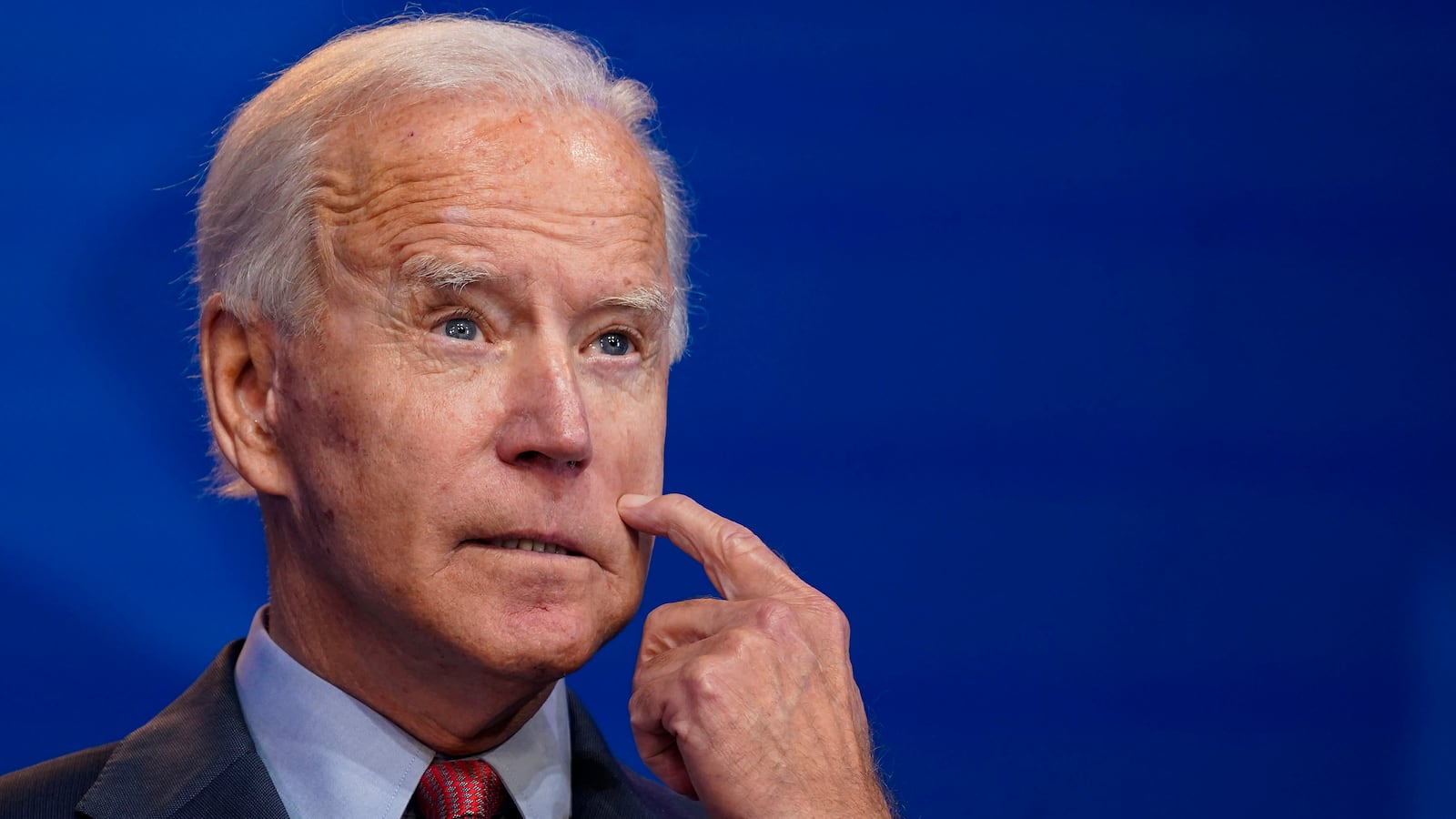President Joe Biden is throwing the kitchen sink at immigration reform. And that’s good, because there is a lot to clean up.
Biden is working both ends of Pennsylvania Avenue. Not only did the president keep his promise to send over, on his first day in office, a proposed immigration reform bill for Congress to chew on—and fight over for the next several months. He has also, in his first two weeks on the job, issued a slew of executive orders intended to fix some of what former president Donald Trump broke, tarnished, or sullied with his heartless, harebrained, and half-baked immigration policies.
I know what you’re thinking. You’ve seen this movie before. Well, maybe you have—but maybe you haven’t. Biden is trying something that seems familiar at first glance, but is at closer look quite a novel approach.
On the one hand, his immigration reform bill looks like past bills because it’s built around the same big-ticket item: a path to U.S. citizenship for the estimated 11 million illegal immigrants currently living in the United States. Previous legislation has suggested that the path should be as long as 12 years, but Biden wants to cut it to eight. That idea alone is enough to keep Congress preoccupied, and feuding, over the next few months. Democrats will talk about lifting people “from the shadows” and giving them a chance to contribute further to America, while Republicans will talk about “amnesty” and upholding “the rule of law.”
But what’s missing from the Biden bill are the kinds of sticks and carrots that formed the foundation of previous stabs at immigration reform. Where are the guest workers, to get the support of pro-business Republicans? Has anyone seen the employer sanctions that are usually in these bills to win over the votes of pro-labor Democrats who often oppose reform efforts because unions fear competition from newly legalized immigrant workers? What about the low-hanging fruit that usually attracts support from both Republicans and Democrats, i.e. increased border security?
These are the kinds of things that are usually considered—along with legalization, regularization, amnesty, whatever you want to call it—the essential components of comprehensive immigration reform. They get included in legislative proposals so they can be haggled over and negotiated away and used as lures to attract support.
The fact that they’re not part of Biden’s bill tells me one of three things. One, maybe the administration doesn’t think the bill is going to pass anyway, and so the White House isn’t bothering to include all the trimmings. Two, maybe the White House—with an eye toward protecting vulnerable congressional Democrats who have to stand for reelection in 2022—doesn’t want the bill to pass, and this is all a show to placate immigration reform activists.
Or three, there may be some really smart people on Biden’s team who understand that, in years past, it was those horse-trading items that often gummed up the works and kept immigration bills from passing. Leaving the sweeteners out may increase the chance the bill will pass because the sweeteners are often divisive—both in Congress, and the public as a whole—and they ignite the special interests who then get into the sandbox and make the whole process of passing the bill more partisan, polarized, and poisonous.
Take, for instance, guest workers. Business interests say we need to bring in temporary foreign workers to do these jobs. That upsets and inflames organized labor which argues that foreign workers take jobs and drive down wages for U.S. workers. Now, the haggling over an immigration bill, which was supposed to be about securing U.S. borders and ports while giving legal status to some of the undocumented, becomes a pissing contest between labor and management, each of which is throwing money at their respective armies in Congress. Suddenly, both parties are awash in money, and they can only think about one thing: How do they keep the faucet turned on?
People ask me all the time why we haven’t had a meaningful and comprehensive immigration reform bill—one that combines enforcement, employment, and legal status—passed by Congress since the Immigration Reform and Control Act of 1986. I’ve just explained why: There’s no money in compromise. There’s money in conflict.
Biden knows all this. For 36 years in the Senate, he had a front-row seat to this circus. So with his immigration bill, he just sidesteps all that special interests bullshit on both sides, and makes what looks like a clean ask: U.S. citizenship for the 11 million undocumented people in this country.
Instead of citizenship, Biden should have asked—in his bill—for the three things that the undocumented tell me they want: legal status so they can’t be deported, the ability to travel across borders so they can go home and visit family members who got left behind, and the ability to get a driver’s license so they can get back and forth to work. That’s it. That’s what the undocumented need and deserve.
But Biden has decided to go bigger. The core question that confronts his bill is this: Is this the best time to pass immigration reform legislation that adds some humanity and common sense to a system that can be unfair, unkind, unworkable, and unjust? Or is it the worst time? It may be that four years of Donald Trump turning immigration into The Hunger Games has made Americans crave a better and softer approach. Or it may be that, in the same way that thousands of Americans on Jan. 6 marched on Washington and hundreds of them stormed the U.S. Capitol, there is a large swath of Americans who are ready to fight against anything that looks like amnesty for undocumented immigrants.
Isn’t that rich? A bunch of lawbreakers suddenly preaching the virtue of upholding the rule of law. Stay tuned. You don’t want to miss that.






